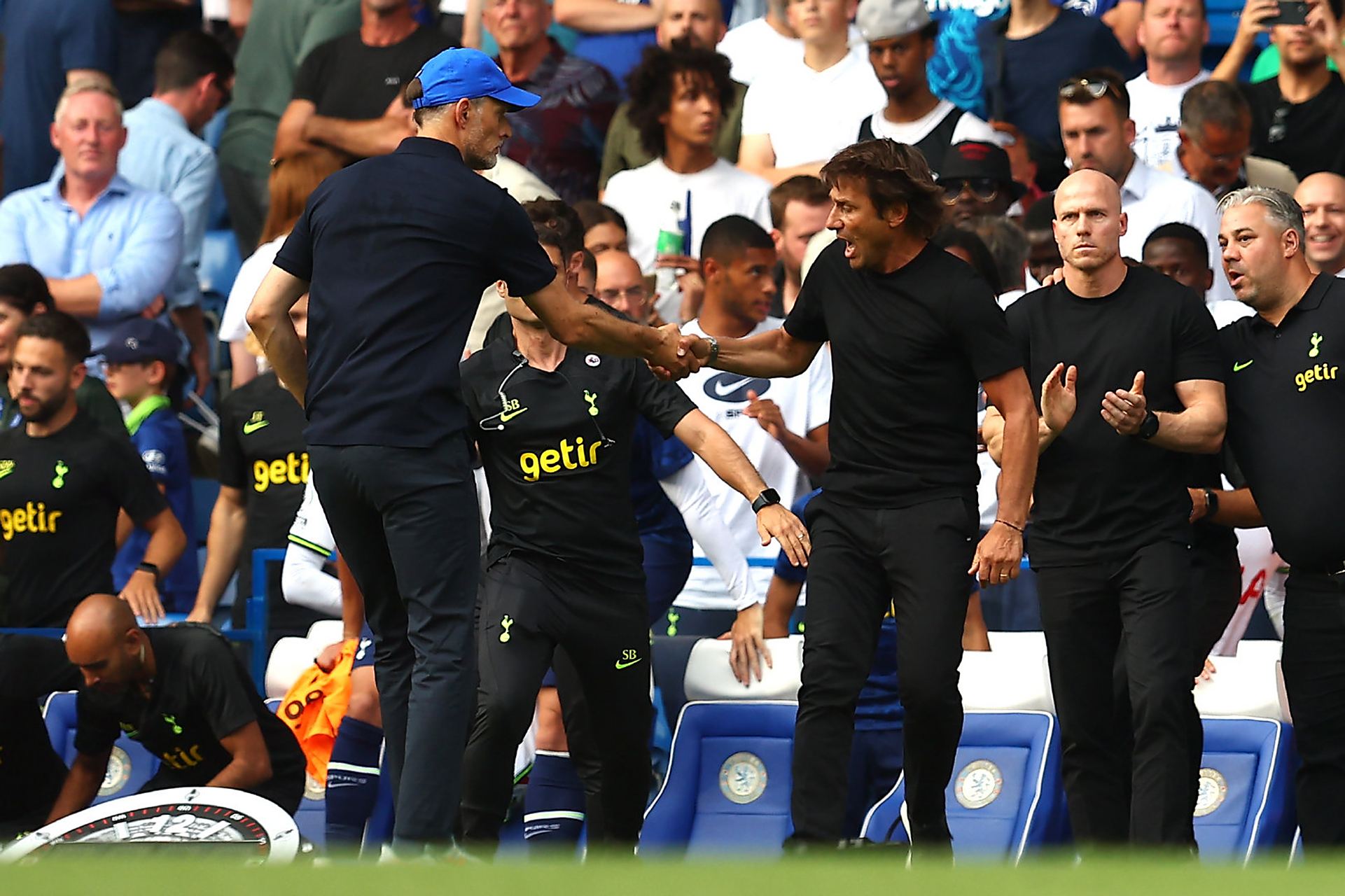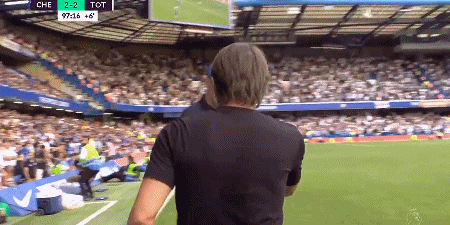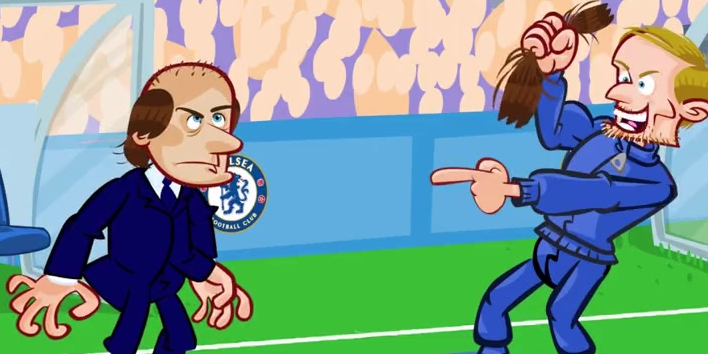
Antonio Conte vs. Thomas Tuchel: The Fiery Clash That Defined a London Derby (August 15, 2022)
The Context: A Powder Keg of Emotions and Stakes
The 2022–23 Premier League season kicked off with a bang on August 15, as Chelsea hosted Tottenham Hotspur in a London Derby that would become infamous for its drama both on and off the pitch. The match itself—a thrilling 2-2 draw—was overshadowed by the explosive altercations between managers Antonio Conte and Thomas Tuchel, whose rivalry spilled into two separate confrontations that captivated global audiences.
For Conte, returning to Stamford Bridge as Tottenham’s manager carried deep emotional weight. He had previously led Chelsea to a Premier League title in 2017 but left under acrimonious circumstances, souring his relationship with the club. Tuchel, meanwhile, had established himself as a tactical innovator at Chelsea, winning the Champions League in 2021 but faced mounting pressure to deliver domestic success. The stage was set for a clash of personalities and philosophies—a battle of passion vs. precision, Italy vs. Germany, and legacy vs. ambition.

The Match: A Rollercoaster of Drama
The game mirrored the intensity of the sidelines. Chelsea took an early lead through Kalidou Koulibaly’s thunderous volley, but Tottenham equalized through Pierre-Emile Højbjerg’s low strike. Chelsea regained the lead via Reece James, only for Harry Kane to snatch a 96th-minute equalizer. The VAR controversies loomed large:
Højbjerg’s goal: Tottenham’s midfielder scored after a contentious build-up where Rodrigo Bentancur appeared to foul Kai Havertz, and Richarlison was marginally offside, potentially interfering with Édouard Mendy’s line of sight.
Kane’s header: The decisive goal came after Cristian Romero blatantly pulled Marc Cucurella’s hair, a clear foul that went unpunished.
These calls infuriated Tuchel, who later accused referee Anthony Taylor of inconsistency. For Conte, the result validated his never-say-die ethos, but his celebrations would prove provocative.

The Clashes: From Chest-Bumping to Handshake Fury
The First Confrontation (68th minute):
After Højbjerg’s goal, Conte erupted into a fist-pumping, chest-thumping celebration inches from Tuchel. The German manager, already seething over the VAR decisions, retaliated with aggressive gestures, leading to a chest-to-chest standoff. Both were booked by Taylor, but the tension simmered.
The Second Confrontation (Full-Time):
As the final whistle blew, Tuchel approached Conte for a handshake. The Italian, still euphoric from Kane’s equalizer, offered a cursory gesture without eye contact. Tuchel, adhering to his Germanic code of handshake etiquette, refused to let go, sparking a shouting match. The melee spilled into the tunnel, where staff and players intervened. Both were sent off with red cards, marking the first time two Premier League managers were dismissed in the same match since 2005 .

Root Causes: A Perfect Storm of Frustration
The clashes were not isolated incidents but the culmination of deeper tensions:
Tactical Antagonism: Conte’s high-intensity, counter-attacking style clashed with Tuchel’s positional, possession-based system. This tactical rivalry manifested in heated sideline exchanges as both managers barked instructions at their players.
Personal Grudges: Conte harbored resentment toward Chelsea’s hierarchy for his 2018 sacking, while Tuchel viewed Tottenham as a rival to dominate. Their history of clashes—including Tuchel’s 4-0 Champions League thrashing of Conte’s Inter Milan in 2021—added fuel to the fire .
VAR Controversies: The match became a referendum on VAR’s limitations. Tuchel’s fury over the unpunished hair-pull and offside non-call reflected broader skepticism about the technology’s application. As VAR official Mike Dean later admitted, he erred by not advising Taylor to review Romero’s foul, a decision that “haunted” him .
Cultural Divide: Tuchel’s insistence on eye contact during handshakes highlighted a German-Italian cultural clash. In Italy, handshakes are often perfunctory, while Germans prioritize directness—a nuance lost in the heat of the moment .

Aftermath: Penalties and Reflection
The Football Association (FA) swiftly acted, fining Conte £15,000 and Tuchel £35,000, with Tuchel suspended for one match . The incident sparked debates about managerial conduct in the Premier League, drawing comparisons to historic feuds like José Mourinho vs. Arsène Wenger.
For Chelsea and Tottenham, the fallout was immediate. Tuchel missed Chelsea’s 3-0 win over Leicester City, while Conte’s absence in Tottenham’s 2-1 loss to Wolves exposed tactical vulnerabilities. The drama also overshadowed Chelsea’s promising start under new owner Todd Boehly, who had invested £170 million in transfers, and Tottenham’s £50 million signing of Richarlison .

Legacy: A Turning Point in Modern Football
The clash encapsulated the emotional rollercoaster of modern football—a sport where billion-dollar investments, global scrutiny, and personal rivalries collide. It revealed the human cost of elite coaching: Conte’s red-faced rage and Tuchel’s icy stare became metaphors for the pressure cooker of top-tier management.
For Conte, the incident solidified his reputation as a combative leader, while Tuchel’s outburst hinted at the unspoken frustrations of a manager navigating a squad in transition. As former Chelsea striker Kevin Campbell noted, the red cards were “unnecessary,” with the blame lying more with the referee’s inconsistent officiating than the managers’ passion .
In the end, the 2-2 draw and the sideline spectacle became a microcosm of the Premier League’s allure—a league where anything can happen, and where even the most calculated managers are not immune to the primal emotions of the game. As Xavi Hernández later quipped: “Conte and Tuchel’s clash wasn’t just a derby moment—it was a reminder that football is played with both the head and the heart.”
This article is based on the analysis of the match and events as reported by .




